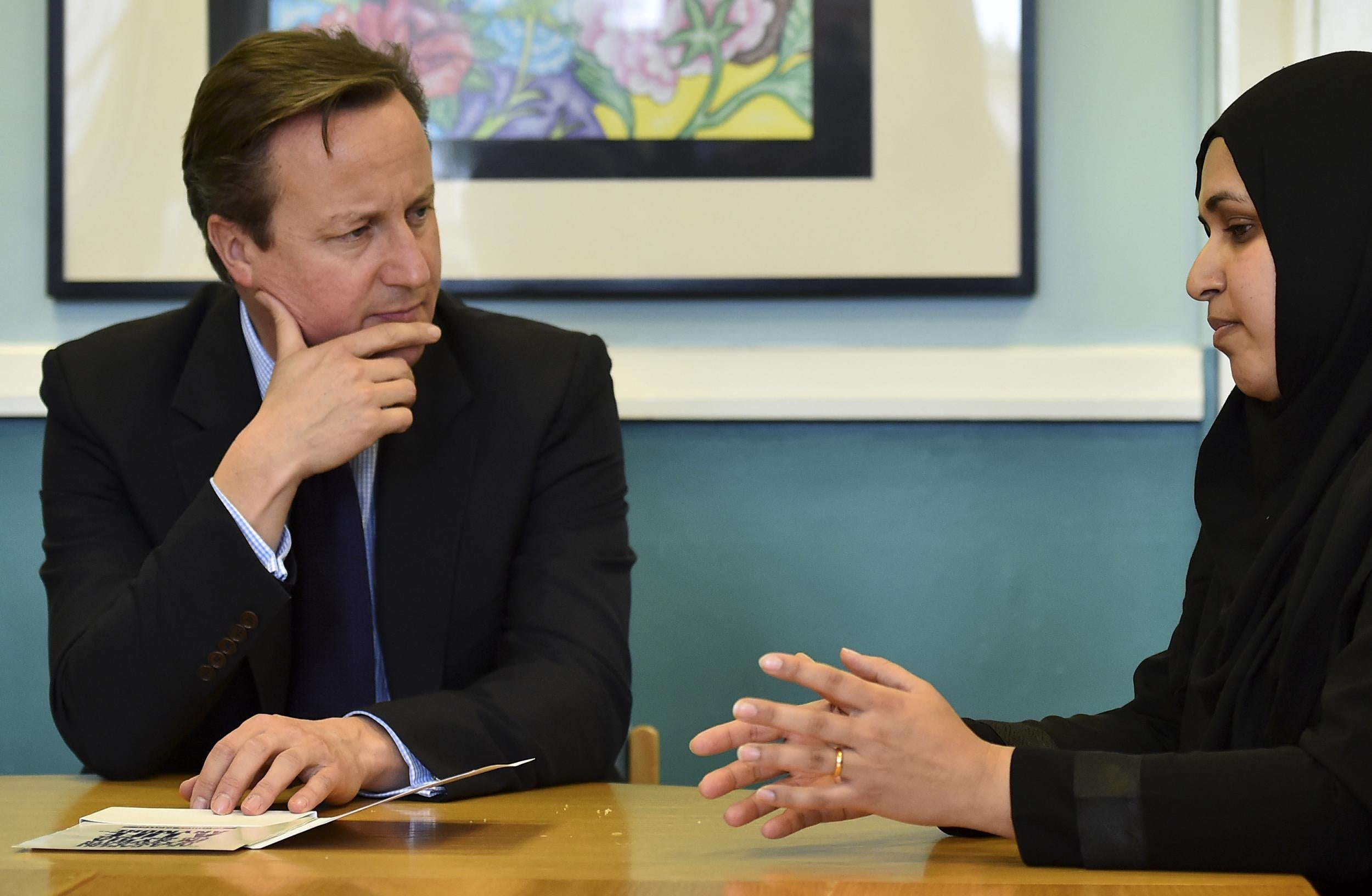David Cameron accused of treating Muslims as 'aliens to be bashed from time to time for political gains'
Ramadhan Foundation dismisses the Government's new counter-extremism row as a 'PR exercise' and a 'missed opportunity'

Your support helps us to tell the story
From reproductive rights to climate change to Big Tech, The Independent is on the ground when the story is developing. Whether it's investigating the financials of Elon Musk's pro-Trump PAC or producing our latest documentary, 'The A Word', which shines a light on the American women fighting for reproductive rights, we know how important it is to parse out the facts from the messaging.
At such a critical moment in US history, we need reporters on the ground. Your donation allows us to keep sending journalists to speak to both sides of the story.
The Independent is trusted by Americans across the entire political spectrum. And unlike many other quality news outlets, we choose not to lock Americans out of our reporting and analysis with paywalls. We believe quality journalism should be available to everyone, paid for by those who can afford it.
Your support makes all the difference.David Cameron has been accused of treating Muslims as "aliens to be bashed from time to time for political gains" with his new counter-extremism strategy, which he set out on a visit to Luton on Monday.
The Prime Minister vowed to "aggressively" pursue radical preachers as he announced measures to treat people convicted of terrorism or extremism like sex offenders who will be automatically barred from working with children and vulnerable people.
However the Ramadhan Foundation said Mr Cameron's latest measures, which include giving powers to police to shut down mosques where extremist meetings take place, withdraw passports from teenagers and ban extremists from the internet, would not succeed because of "little support from the Muslim community".
Its chief executive, Mohammed Shafiq, dismissed Mr Cameron's new approach as a "PR exercise".
In a scathing attack on the Government's plans, he said: "What we require now is for British Muslims to be engaged without prejudice and a new approach adopted that will see Muslims as equal citizens and not some sort of aliens to be bashed from time to time for political gains.
“Today’s counter extremism announcement by the Government is a missed opportunity to really engage the Muslim community and work in partnership against terrorism and extremism."
The new plans announced by Mr Cameron on Monday will introduce the ability to ban radical preachers from posting material online, while powers for parents to withdraw passports from their children will be extended to all youngsters under the age of 18. In July he announced plans to apply it to children under 16.
He said the Government had failed to do enough to halt the rising evidence of Islamaphobia across the UK and had failed to say how they will defeat the Far right "beyond shouting slogans".
"The Prime Minister and the Government have a real chance to enact real change in tackling extremism if there are prepared to listen to the voices of young Muslims," Mr Shafiq said.
The Ramadhan Foundation's intervention is the latest Muslim organisation to hit out at Mr Cameron following his promise to tackle Muslim extremism, which he described as the "one of the biggest social problems" facing Britain.
The Muslim Council of Britain, the biggest Muslim faith group in the UK, criticised the new counter-extremism strategy for being based on ""fuzzy conceptions of British values" and risked "alienating" the very Muslim communities that are needed to confront the likes of Isis and Al-Qaeda.
Dr Shuja Shafi, the organisation's secretary general, questioned proposals to ban extremists from mosques and from using the internet would work in practice, asking: “Do such mosques really exist?”
“By whose definition are they deemed to be extremist?” he asked. “We cannot help also detect the McCarthyist undertones in the proposal to create blacklists and exclude and ban people deemed to be extremist,” Dr Shafi added.
Mr Cameron promised to help Muslim communities with the battle against extremism, but said “far more people” needed to “come forward” from the “silent majority” in Muslim communities to help teach a tolerant and inclusive Islam that was in tune with British values.
But Mr Shafi said ministers were too focused on Muslims and plans to put more emphasis on the teaching of British values were based on ambiguous definitions of what they meant.
“Today’s ‘one nation’ counter-extremism strategy continues down a flawed path, focusing on Muslims in particular, and are based on fuzzy conceptions of British values," he said.
"It risks being counter-productive by alienating the very people needed to confront Al-Qaeda or Daesh-related terrorism: British Muslim communities.”
Speaking on a visit to Luton in Bedfordshire Mr Cameron said: "We need a comprehensive strategy. That means it is not just the police and our border force and our security services. Every school, every college, every community and every family needs to help with this.
"It is for everyone to fight extremism. We need to recognise that the poison of extremism is corrupting young minds and we need to stop it right where it starts."
Join our commenting forum
Join thought-provoking conversations, follow other Independent readers and see their replies
Comments